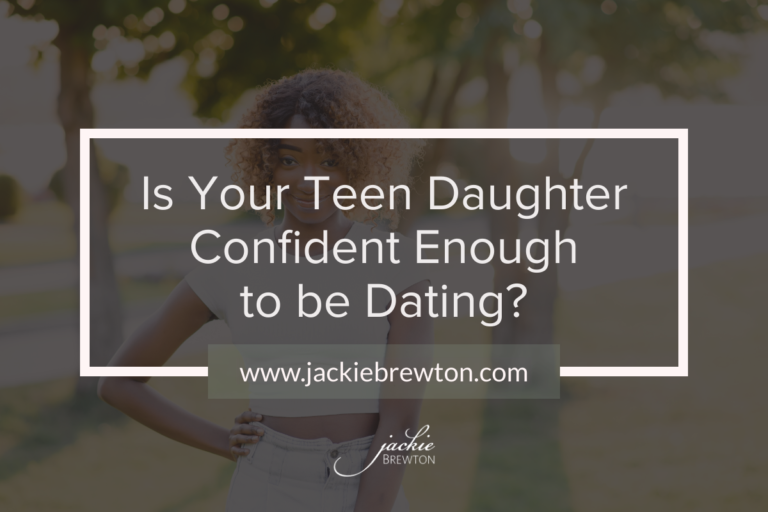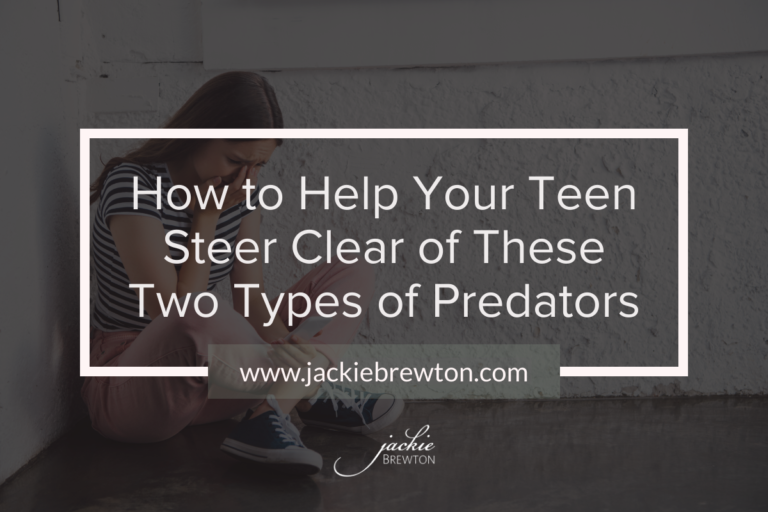Does Your Daughter Think “Ride-or-Die” is the Way to Date?

For the past 17+ years, my mission has been clear:
Empower teens to dream bigger dreams, make better decisions, and realize brighter destinies.
Yet, when it comes to teen girls, I almost always come up against one major obstacle:
Convincing them that they’re worth it.
…Worth being respected.
…Worth being loved.
…Worth waiting for.
…Worth not letting anyone or anything get in the way of realizing their dreams.
The fact that far too many girls have to be convinced that they ARE worthy of the above is a major problem.
And particularly when we’re talking about teen dating violence.
The issue isn’t just that girls don’t believe they deserve better treatment.
It’s that far too many think abusive behavior (in any form), is ”acceptable” if they want to be in a relationship.
Which is why having these conversations with your daughter is a MUST!
The best place to start?
Gauge your daughter’s thought process when it comes to love, sex, and relationships.
Based on what I witness in classrooms every day, it might not be as healthy as you’d hope.
Penny for Her Thoughts
I asked a high school class if they knew how to tell if they were in love.
A young lady responded, “Because they can do anything to you and you’ll stay.”
That any girl would think staying in a relationship no matter how she’s treated is a sign of love proves that we have failed our youth as a culture.
The same culture that celebrates boys for going after what they want and then excuses their aggressive behavior as “boys being boys.”
While girls are expected to be “ride-or-die” (loyal to their partner at all costs), in their relationships and happy just to have someone.
Then we wonder why some girls remain in relationships that cause them pain…
“I got a boyfriend. I thought he was awesome but he kept trying to pressure me into sex. I didn’t like it but I didn’t care as long as I had a boyfriend. One day, since he knew he would never get anything from me, he cursed me out, called me terrible names, and broke up with me. I had already had no self-esteem so because of that I got depression and anxiety. I began cutting myself and carving words into my skin like ‘Ugly,’ ‘Unloved,’ ‘Hideous,’ and ‘I’m sorry.’ I then got another boyfriend. He acted sweet but was abusive. He abused me mentally, physically, emotionally, and sexually. He would smile and grab me so I would push him off. I told him about my commitment and he said ok, but one day he tried to force me to do the ‘big’ at my church. I pushed him off and walked away. I started getting nervous and cut myself at least 5 times a day.“
One person can’t change a culture alone. And it won’t happen overnight.
But if we keep challenging what the culture tells our youth, eventually we’ll create enough ripples that’ll lead to positive change.
That’s my goal with students in the classroom. And I encourage you to make it yours with your daughter at home.
Challenge Her Thoughts. Help Change the Culture.
Before you challenge your daughter’s thought process on this topic (or any other), sit back and listen to what she has to say.
Without judgement.
Believe me, I know that’s easier said than done.
It took all I had not to rush into “teacher” mode when the young lady shared that she would stay in a relationship no matter what a guy did to her if she was in love.
But I held back. And I encourage you to do the same.
Why?
Because the minute your daughter feels like she’s being judged, she’s more likely to get defensive, make excuses for why she thinks the way she does, and ultimately dismiss whatever you have to say next.
Which is what happened when a male student jumped into the discussion and said:
“I hope you’re not talking about cheating, because if a guy cheats on you and you stay in the relationship, you’re stupid.”
Immediately defenses went up. And not just the young lady’s.
Multiple girls in the class were visibly upset and offended by his response.
(Which was my first clue that they had stayed with a boyfriend who had cheated on them.)
Then the excuses followed, like: “Everybody makes mistakes and people change.”
Or, “Girls may choose to stay in a relationship even after a boyfriend has treated them wrong because they have the memory of how he used to be and they know that he has the potential to be that way again.”
So disheartening to hear, especially from such young girls!
They may have been talking about cheating, but their comments sounded a lot like the narrative you’d hear from grown women who sadly choose to stay in abusive relationships.
I allowed the students to share their opinions about whether it was right or wrong to stay with someone who doesn’t treat you well, until I couldn’t take it any longer.
Then I went into “teacher” mode…
“This is what I think is so sad about staying with someone hoping he will become the person he was when you first started dating him. How do you know that the first person was the ‘real’ person? Have you ever considered that the person who ‘dogged’ you out is the ‘real’ person and the behavior that you saw from him at the beginning of the relationship may have just been a façade? And while you’re waiting for the first person that he presented to you to return, the guy who would consistently treat you right throughout the relationship and NEVER treat you wrong can’t even find you because you’re spending your time waiting on someone to get themselves together. “
Unlike the young man in the class, I didn’t point the finger at them for being “stupid” enough to remain in an unhealthy relationship.
Instead, by asking pointed questions, I encouraged the girls to dig a little deeper and consider a different (more mature) perspective:
Any guy who’d mistreat them in any way, isn’t worth their time, self-respect and certainly not their well-being.
Finally, I left them with a positive to look forward to:
There are “Best Guys” out there waiting on them to realize they deserve better.
And that’s it.
Feel free to use this as a template to engage your daughter in open and honest conversation about teen dating violence (or any other hot-button topics).
And please let me know how your conversations went: Was your daughter receptive? Was there any push-back? What did you learn about your daughter as a result of your talk together?
Give Her Something to Think About!
If you’re at all concerned about your daughter getting involved in unhealthy relationships, I have a great resource for you!
Check out my Dating Boundaries 101 virtual guide that will:
- equipyour daughter to maintain healthy relationships,
- educateher about potential red flags, and
- empowerher with confidence to RUN, not walk away at any sign of abuse.
Enroll your daughter today and let’s change the culture!



